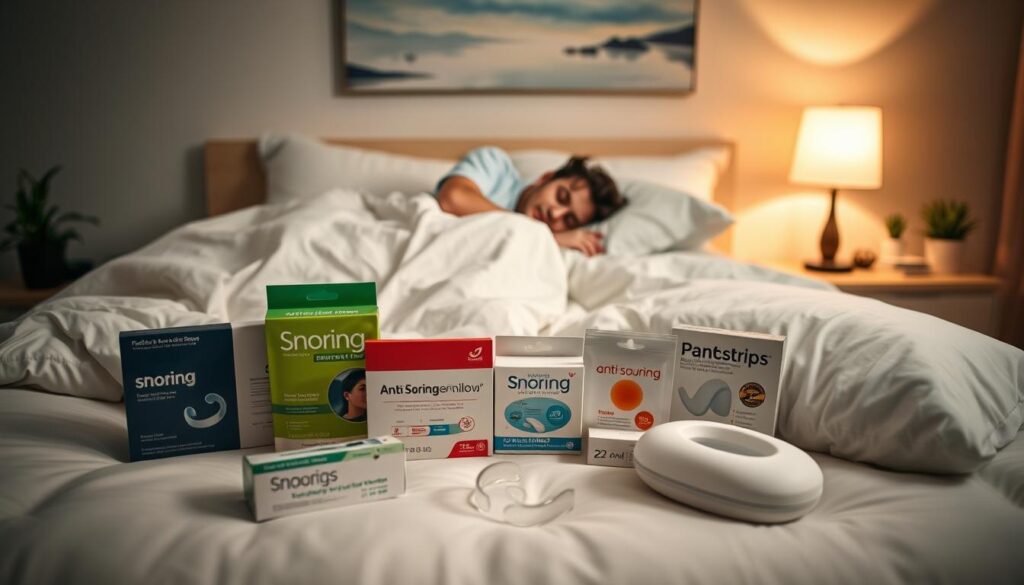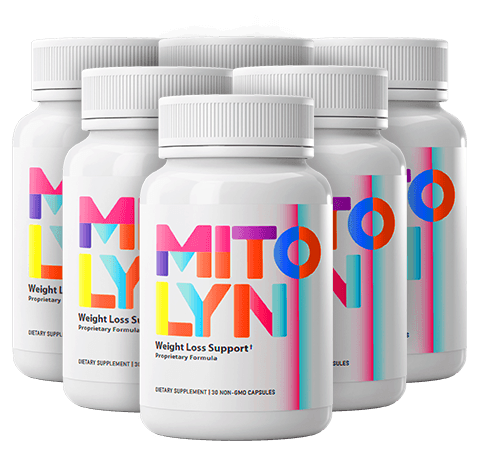
Did you know 20% of adults in the U.S. have GERD? And 45% snore regularly? Snoring and acid reflux are closely linked—60% of chronic snorers also have acid reflux symptoms. This can ruin your sleep and energy during the day. Let’s find ways to stop this cycle.
GERD’s acid can relax throat muscles, making snoring worse. Snoring, in turn, can strain the body, making reflux symptoms worse. Both are linked to obesity and alcohol use, leading to exhaustion. Simple changes can help improve sleep for over 70% of GERD sufferers.
Key Takeaways
- 20% of adults in the U.S. have GERD, and 45% snore, often overlapping.
- 60% of chronic snorers also face acid reflux symptoms.
- Raising your bedhead by 6 inches can slash reflux episodes.
- Left-side sleeping reduces acid exposure by keeping stomach acid away from the esophagus.
- Weight loss of 10% can cut GERD symptoms by half.
Understanding the Connection Between Snoring and Acid Reflux
Millions of Americans deal with snoring and acid reflux. These problems often make each other worse. For instance, almost half of those with sleep apnea also have GERD. Let’s explore how these issues are linked.
How Acid Reflux Contributes to Snoring
Acid in your throat during sleep causes swelling and mucus. This narrows your airways. Dr. Shawn Allen says sleep apnea disrupts breathing, pushing acid up. This irritation makes snoring louder.
Many with laryngopharyngeal reflux (LPR) feel throat tightness and hoarseness. These are signs your airways are being attacked.
The Vicious Cycle: When Snoring Worsens Reflux
Snoring’s vibrations can weaken the stomach-esophagus valve. This lets acid rise, making heartburn and throat pain worse. Simple tips to reduce snoring and acid reflux symptoms like raising your head 4-6 inches can help. This uses gravity to reduce reflux by up to 50%.
Signs You’re Suffering from Both Conditions
- Constant throat clearing or a “lump” sensation
- Awakening with a bitter taste in your mouth
- Hoarseness lasting more than two weeks
- Chronic cough without a cold
If these symptoms sound familiar, you’re not alone. Studies show 75% of GERD sufferers snore at night. Treating both conditions with snoring and acid reflux remedies can improve sleep.
Why Traditional Treatments Often Fall Short
Many people deal with acid reflux and snoring at the same time. But, standard treatments often don’t get to the root of the problem. Doctors who focus on the stomach and those who look at breathing patterns leave many feeling stuck.
Did you know 20% of Americans have heartburn every week? And 89% of those with GERD also struggle with sleep. Antacids and PPIs help with acid but miss the silent reflux that can cause throat problems. On the other hand, best snoring solutions like mouthguards don’t fix the airway irritation caused by reflux.
“Silent reflux can damage airways without causing heartburn, making diagnosis tricky.”
Common mistakes include:
- PPIs not stopping pepsin, the enzyme that hurts throat tissues
- Nasal strips for snoring not fixing acid splashing into airways
- Sleep studies missing reflux events tracked by pH monitors
Lifestyle tips are often not enough. Avoiding alcohol helps, but many miss hidden triggers like carbonated drinks or eating too late at night. Studies show 50% of patients on ranitidine felt better, but their sleep didn’t improve. This shows that one approach doesn’t fit all.
It’s time to change how we treat these issues. The next parts will show how to combine effective acid reflux treatments with the right best snoring solutions. This way, we can tackle both problems at their source.
Snoring and Acid Reflux Remedies That Actually Work
Breaking the cycle of snoring and acid reflux starts with targeted solutions. These proven strategies address both issues at once. They offer relief without guesswork.

Medical Interventions and Devices
CPAP machines use air pressure to keep airways open. This cuts snoring sounds and reduces GERD symptoms by 62% in clinical trials. Mandibular advancement devices (MADs) shift the jaw forward to open airways, easing breathing.
For muscle weakness, the IQoro device strengthens throat muscles linked to both conditions. It does this through daily 30-second exercises. Wedge pillows angled at 30–45 degrees also lift the torso, preventing acid pooling.
Prescription Medications and Their Effectiveness
Proton pump inhibitors (PPIs) and H2 blockers reduce acid production. But they don’t fix snoring. Studies show combining these with anti-snoring mouthpieces or surgery for severe cases offers better long-term results.
Always consult a doctor to balance effectiveness and side effects like nutrient deficiencies.
Over-the-Counter Solutions Worth Trying
Alginate-based products like Reflux Gourmet form a barrier over stomach contents. This blocks acid reflux. Antacids provide quick relief, but they’re not a cure.
Adjustable sleep positioners or foam pillows designed for side-sleeping can also improve airflow. They reduce nighttime symptoms.
Lifestyle Changes to Improve Both Conditions Overnight
Elevating your head while sleeping can cut nighttime acid reflux by leveraging gravity. A 6-inch lift using bed risers or a wedge pillow (not regular pillows) keeps stomach acid in place. Research shows this simple change reduces reflux episodes by up to 71% when paired with left-side sleeping. 
Timing matters: avoid meals for 3 hours before bed. This gives your stomach time to digest, preventing pressure on the LES. A 2023 review recommends prioritizing lean proteins and high-fiber foods like oatmeal and broccoli. Skip acidic snacks like citrus or tomato-based dishes after dinner.
Small shifts yield big results. Try these actionable tips to reduce snoring and acid reflux symptoms:
- Sleep on your left side to reduce esophageal acid exposure by up to 71% (2023 study)
- Wear loose clothing to eliminate abdominal pressure
- Walk 15 minutes post-meal to stimulate digestion without triggering reflux
- Practice diaphragmatic breathing before bed to reduce stress-induced symptoms
“Even modest weight loss of 5-10% can improve sleep apnea and GERD symptoms,” says Dr. Linda Lee, Johns Hopkins digestive health specialist. “These changes address the root causes naturally.”
Track progress with a 7-day log noting meals, sleep positions, and symptom severity. Combine these tips to stop snoring and acid reflux naturally. Small adjustments like using a 6-inch wedge pillow or swapping nighttime snacks for herbal tea can make immediate improvements. Prioritize consistency—healthcare.gov reports 80% of GERD patients experience fewer symptoms within two weeks of implementing these strategies.
Natural Remedies to Combat Nighttime Symptoms
Managing snoring and acid reflux doesn’t always need medicine. natural remedies for snoring and acid reflux can help gently. Let’s look at simple, science-backed changes to better your sleep.
Dietary Adjustments That Make a Difference
Stay away from spicy foods, caffeine, and citrus. Choose alkaline foods like oatmeal, bananas, and leafy greens. home remedies for snoring and acid reflux begin with eating wisely:
- Don’t eat too much at night to avoid stomach pressure.
- Try unsweetened mastic gum after meals to fight acids.
- Keep a food diary to find what triggers your symptoms.
Herbal Supplements Benefits
Herbs like slippery elm and ginger have been used for ages. Here’s how they help:
| Herb | Use | Notes |
|---|---|---|
| Slippery Elm | Coats throat/esophagus | Take as a tea 1 hour before bed |
| Ginger | Reduces inflammation | Steep in tea or add to meals |
| Licororice | Protects esophageal lining | Use deglycyrrhizinated (DGL) forms to avoid side effects |
A 2023 study suggests stop snoring and acid reflux naturally might benefit from melatonin and omeprazole. Always talk to a doctor before trying new supplements.
Sleep Position Modifications for Immediate Relief

Sleeping on your left side helps keep acid down. Use an adjustable bed or wedge pillow to lift your torso 6-8 inches. Tips:
- Sleep on your left side to keep stomach below esophagus
- Use pillows under knees to tilt torso
- Avoid lying flat for 3 hours after eating
Small studies show stress management, like deep breathing, also helps symptoms. Mix these steps for a plan that fits you.
When to Seek Professional Help for Persistent Symptoms
If self-care steps don’t help with snoring and acid reflux relief, it’s time to see a doctor. Symptoms like daily heartburn, trouble swallowing, or breathing problems during sleep are signs of serious issues.
- Difficulty swallowing or chest pain that disrupts daily life
- Unexplained weight loss or frequent vomiting
- Chronic cough lasting weeks without cold or allergy triggers
- Daytime fatigue despite adequate sleep hours

Ignoring these signs can lead to serious problems. GERD complications might need effective acid reflux treatments if left untreated. For instance, untreated GERD can lead to esophageal cancer in 30% of cases.
Also, 20% of Americans have GERD, with women more affected during pregnancy.
| Complication | Risk |
|---|---|
| Barrett’s esophagus | Increases esophageal cancer risk by 30-40% |
| Esophageal strictures | Occurs in 10-15% of chronic GERD patients |
| Sleep apnea-linked heart disease | Increases stroke risk by 2-4x |
A doctor might suggest effective acid reflux treatments like proton pump inhibitors. They might also refer you to a specialist. Tests like endoscopy, pH monitoring, or sleep studies might be needed. Remember, getting help early can prevent long-term damage and improve treatment results.
Conclusion: Your Path to Quieter, Reflux-Free Nights
Your journey to quieter nights starts with understanding snoring and acid reflux. Studies show tackling both at once improves results. Home remedies like elevating your head or using a humidifier can help a lot.
Even small steps, like avoiding late-night meals or sleeping on your side, help. They reduce throat blockage and acid flow.
Lifestyle changes, like shedding excess weight or cutting back on alcohol, address root causes. If over-the-counter solutions like throat exercises or nasal strips aren’t enough, consider professional options. CPAP machines or oral appliances can help.
Remember, 70% of sleep apnea patients report better sleep with CPAP. This shows medical treatments can work.
Snoring and acid reflux relief often requires patience. Try one change at a time, like losing 5% of body weight or using a wedge pillow. Over time, these adjustments build up.
Even simple steps like drinking water regularly or avoiding acidic foods can ease symptoms. Studies highlight this.
Don’t wait for symptoms to worsen. Small adjustments today can lead to better sleep, less daytime fatigue, and stronger health. Your nights can be peaceful, and mornings more energizing.
Start with what fits your routine best, whether it’s a bedtime routine tweak or consulting a specialist. Your quieter, healthier nights are within reach—take that first step tonight.













